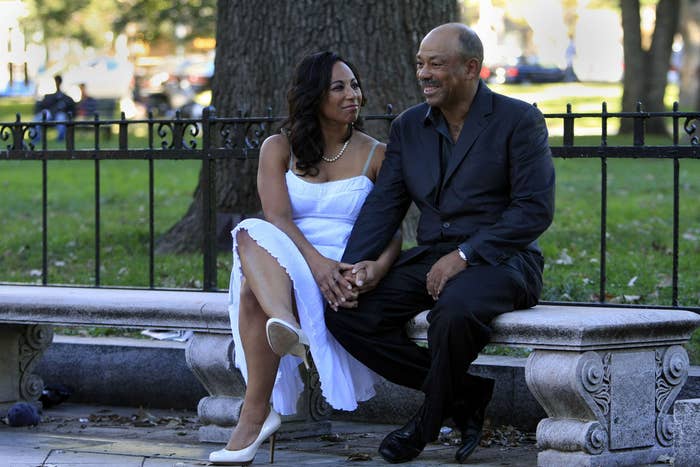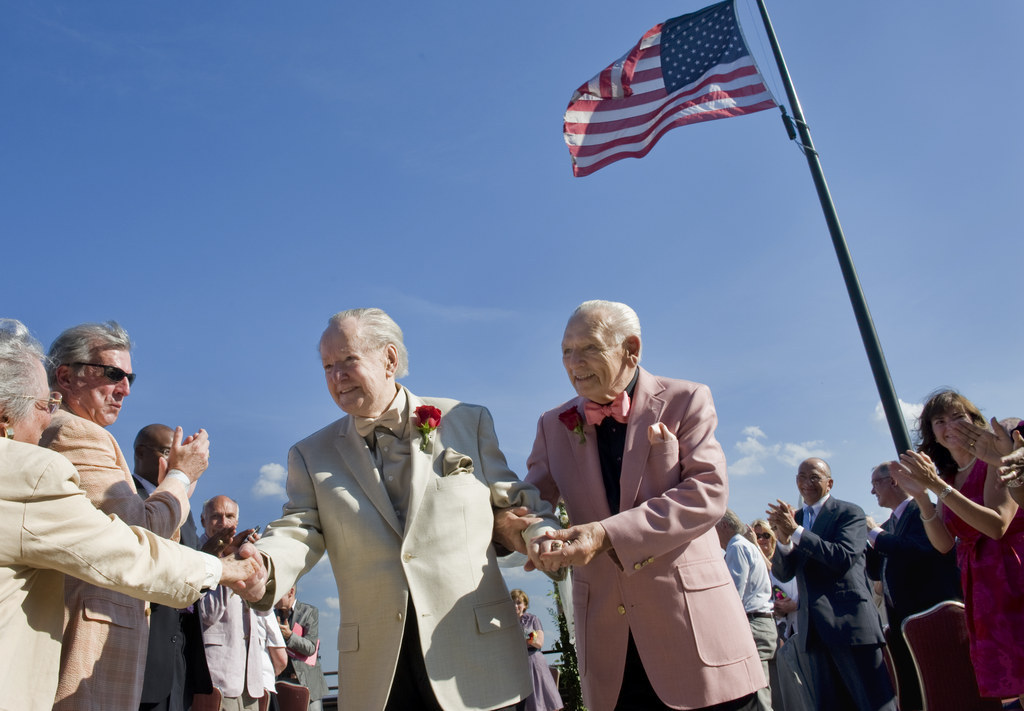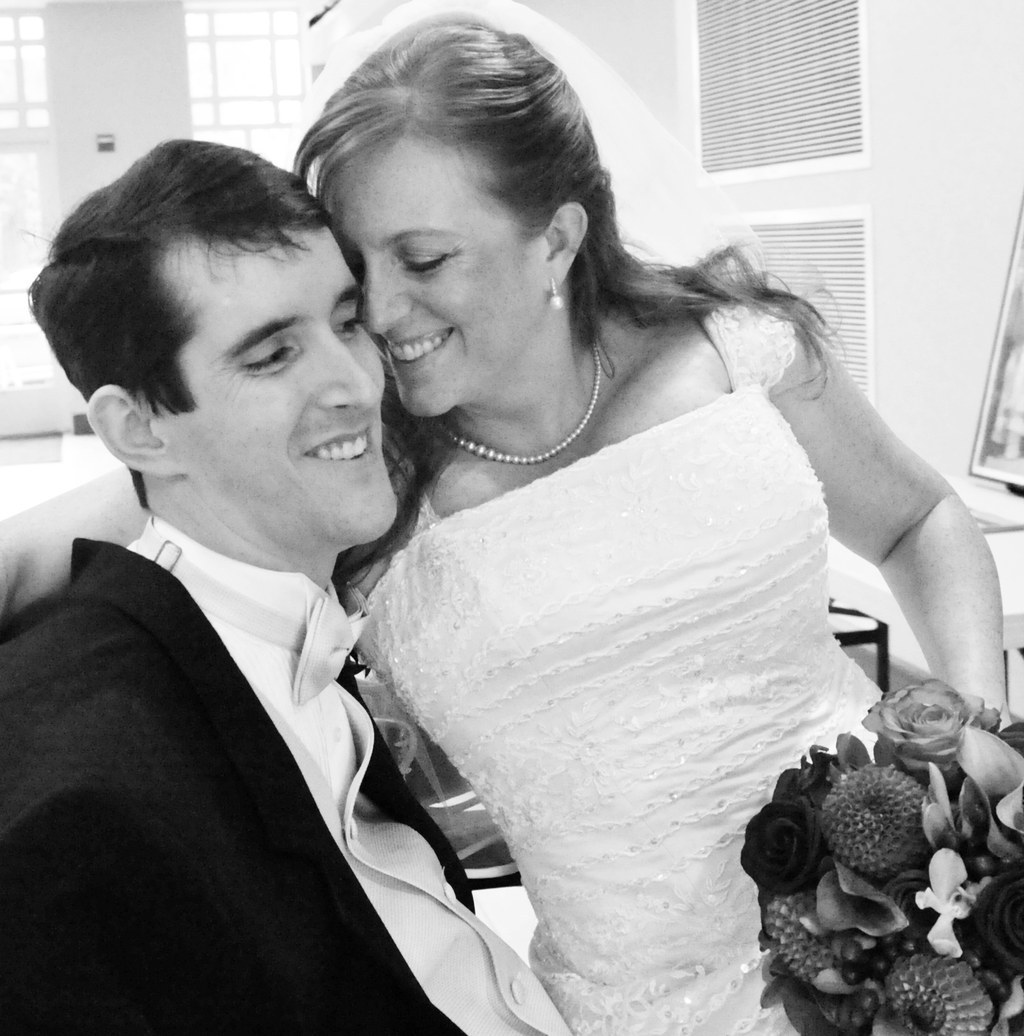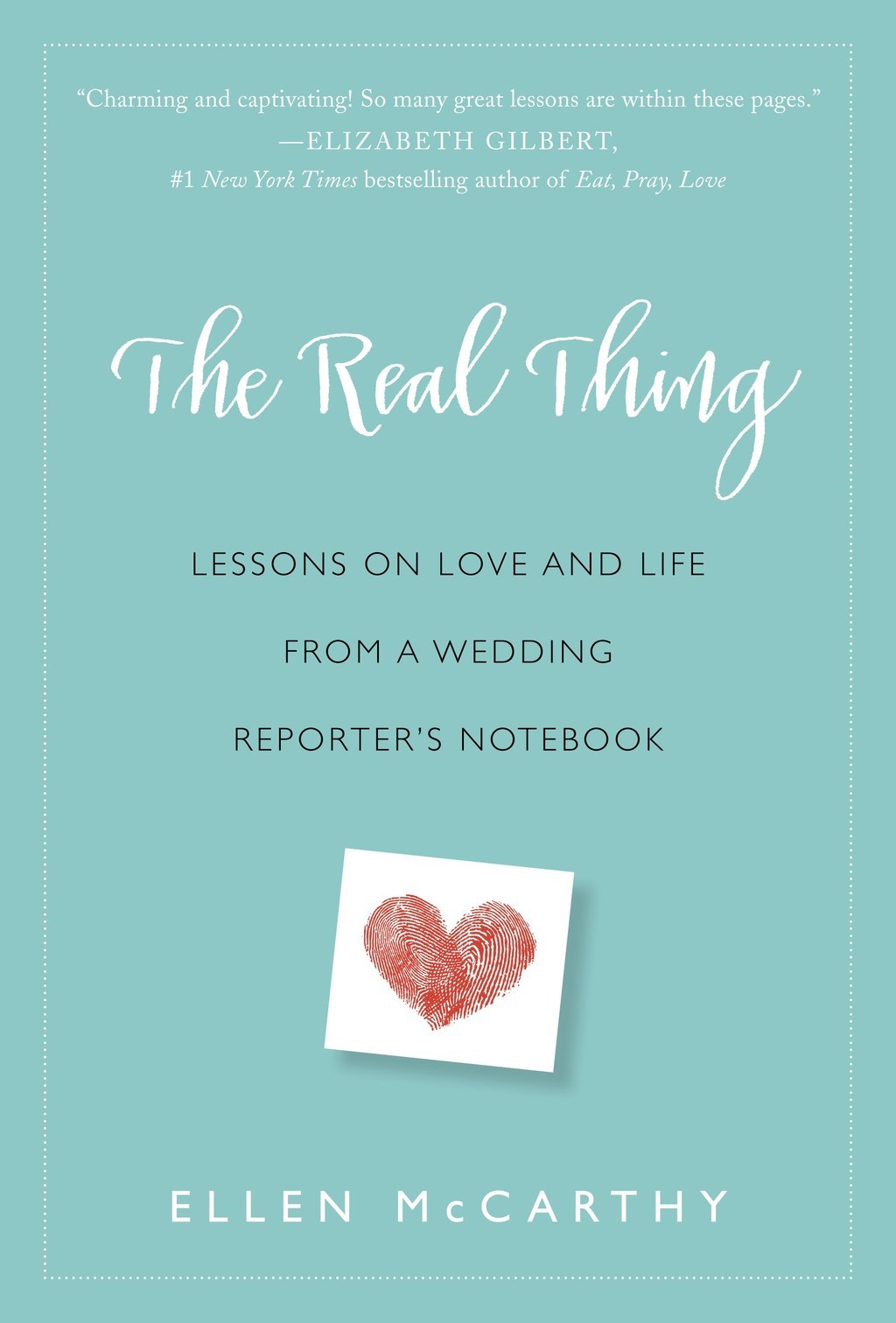Ellen McCarthy interviewed more than 200 couples and dozens of relationship experts during the four years she spent writing about weddings and relationships for the Washington Post. Here's what she told BuzzFeed Life about what makes the strongest relationships work.

1. Hang in there.
So many couples told me about the surprising rewards of sticking it out. Leila and Tony had been together for more than 30 years — struggling together through infertility, career changes, and the challenges that came with raising a daughter with severe disabilities. But as Tony said, "We had the resolve to resolve everything that happened in our relationship." And Leila likes to tell younger women to hang in there. "Because if you can work through it, what you get on the other side is something you can't even imagine — it's very beautiful."
2. Pay attention.
Real attention. The kind that can only happen when you unleash the death grip on your smartphone. Your spouse is changing every day. One groom, who'd been with his fiancée for five years, was amazed — and excited — to continually discover new aspects of her personality. "I'll probably keep learning about her for the rest of my life," he said. And as Zen teacher John Tarrant put it, "Attention is the most basic form of love."
3. Check your expectations.
When you're single it seems like finding the right person is the hard part — after that everything should magically fall into place. And maybe it does. At least until it turns out your Prince Charming is incapable unloading the dishwasher. Or that your dream woman drives you bonkers with her constant indecisiveness. Writer Iris Krasnow was tempted to leave her marriage until a sex therapist friend gave her three words of advice: "Lower your expectations." Meaning: if you're not counting on constant state of Happily-Ever-After wedded bliss, you'll be better prepared to deal with rough patches that inevitably hit even the best marriages. Almost 30 years later, Iris is glad she listened.
4. Express your needs.
Your partner is not, presumably, a mindreader. If you want a back rub or a hug or some alone time — well, for crying out loud, SAY SO! One bride-to-be, Abby, asked her fiancé to write out a list of expectations before they moved in together. "It was really, really detailed stuff," she said. "Like, 'If you come home from work and you've had a bad day, where are you going to go in the house?'" Instant relationship roadmap.
5. Learn how to truly apologize.
We all screw up a zillion times a day. But muttering a terse "sor-ry" doesn't get you out of jail free. Researchers have found that marital happiness depends not on the number of mea culpas exchanged between couples, but on the sincerity of the apologies. As Ben Franklin said, "Never ruin an apology with an excuse."

6. Mind your manners.
Bob and Henry met as servicemen during World War II. They'd been together for more than 60 years by the time same-sex marriage became legal in Washington, D.C. When I asked the secret of their longevity, I thought they'd say something about persisting despite the challenges of being a closeted couple for decades. What they told me was much simpler: Be polite. Always say "please," "thank you," and "excuse me," and treat your partner with at least the same level of kindness you'd show a waitress or checkout clerk.
7. Don't avoid confronting the tough stuff.
Problems are bound to arise — and ignoring them only gives them room to fester. A woman in the midst of a painful divorce told me the one thing she wished she'd done differently was "learn to work through issues. You can't just put things under a blanket and pretend they don't exist." And if a problem seems too big to handle by yourselves, seek the help of a counselor sooner rather than later. As one divorce lawyer said, most separating couples she worked with had seen a therapist, but still ended up in her office anyway. Why? "The answer is simple — they waited too long."
8. Learn the right way to fight with your partner.
Fighting is a healthy part of relationships. Jeremy and Domonique, a couple who met in the National Guard, were deeply in love, but worried his occasional blow-ups would derail the whole relationship. She had to convince him that it was OK that they didn't always see eye-to-eye and that each argument didn't mean it was the beginning of the end. "Then he actually learned to sit down and say, 'OK, look, I'm upset, but we'll talk about it,'" she said. The important thing about conflict is to be able to work through it in a way that's respectful and allows each of you to feel heard and understood.
9. Try a little tenderness.
One young couple who emigrated to the U.S. from India and married against the wishes of their families made an agreement early on in their relationship: whenever they had a disagreement, they held hands while working through it. The touch was a reminder that they were on the same team, they said. And a study by researchers at the University of Virginia found that holding hands can significantly reduce stress. Any physical contact — not just sex — will keep you feeling connected to your partner.

10. Don't take anything for granted.
We never know what the next breath will bring, so we have a choice: focus on all that we're lacking or be thankful — every day — for the imperfect but completely miraculous love that exists in our lives right now. Lori, a woman whose husband died of pneumonia just two years after their wedding, told me her husband Dan taught her "what's really important in life and how precious time really is. So how you spend it, and who you spend it with, is what matters."
Ellen McCarthy's book The Real Thing: Lessons on Love and Life from a Wedding Reporter's Notebook is available now.

